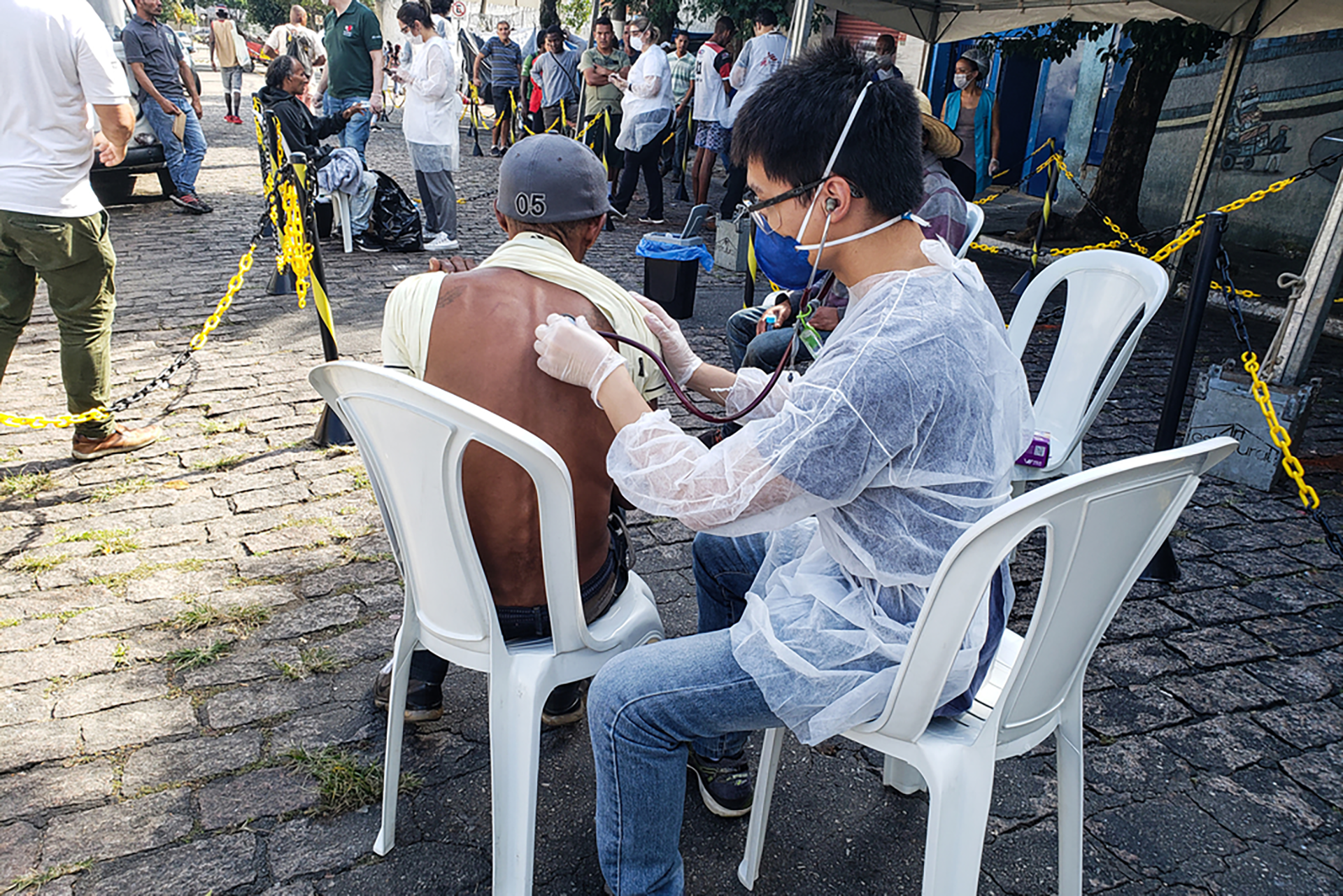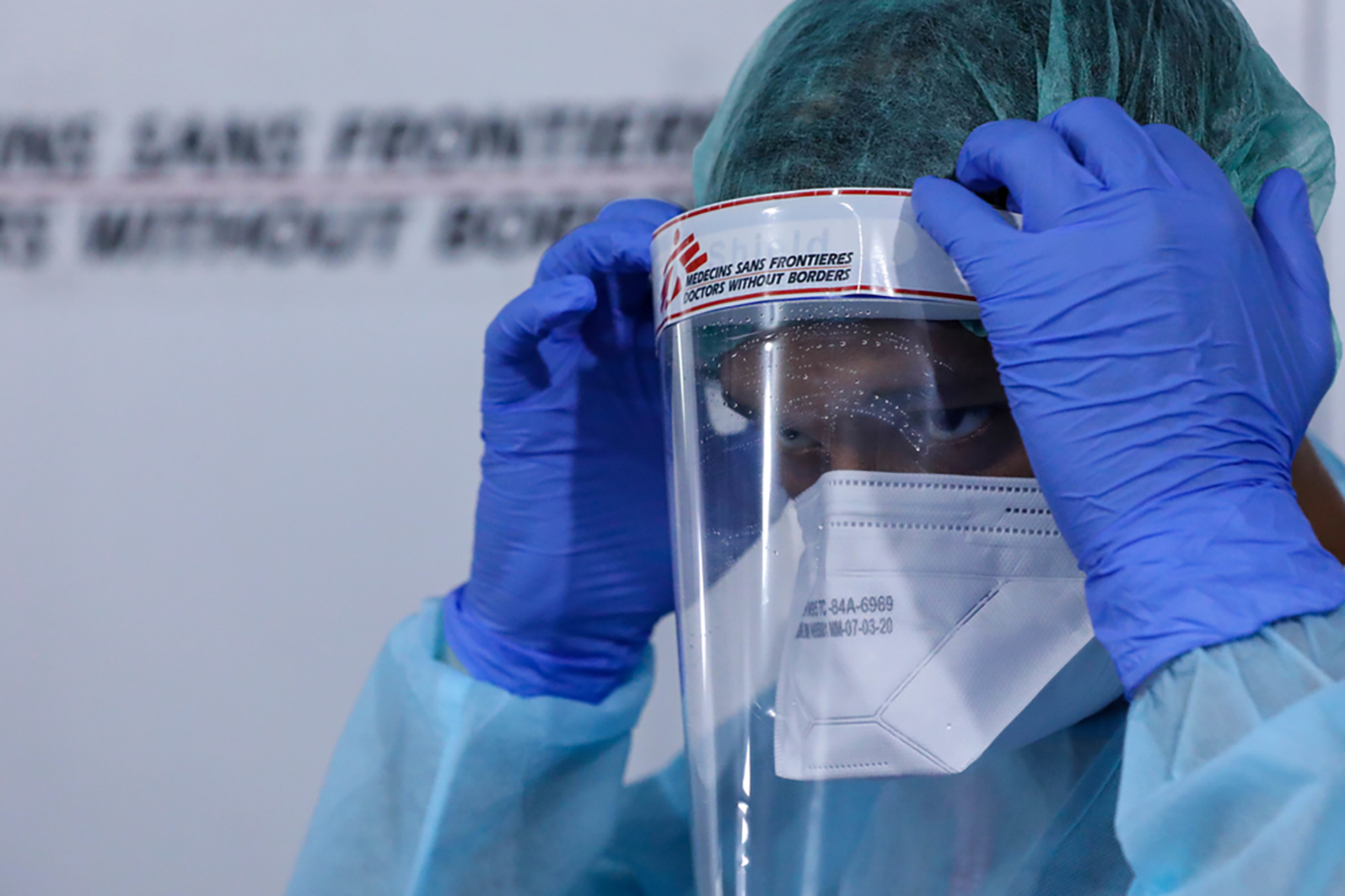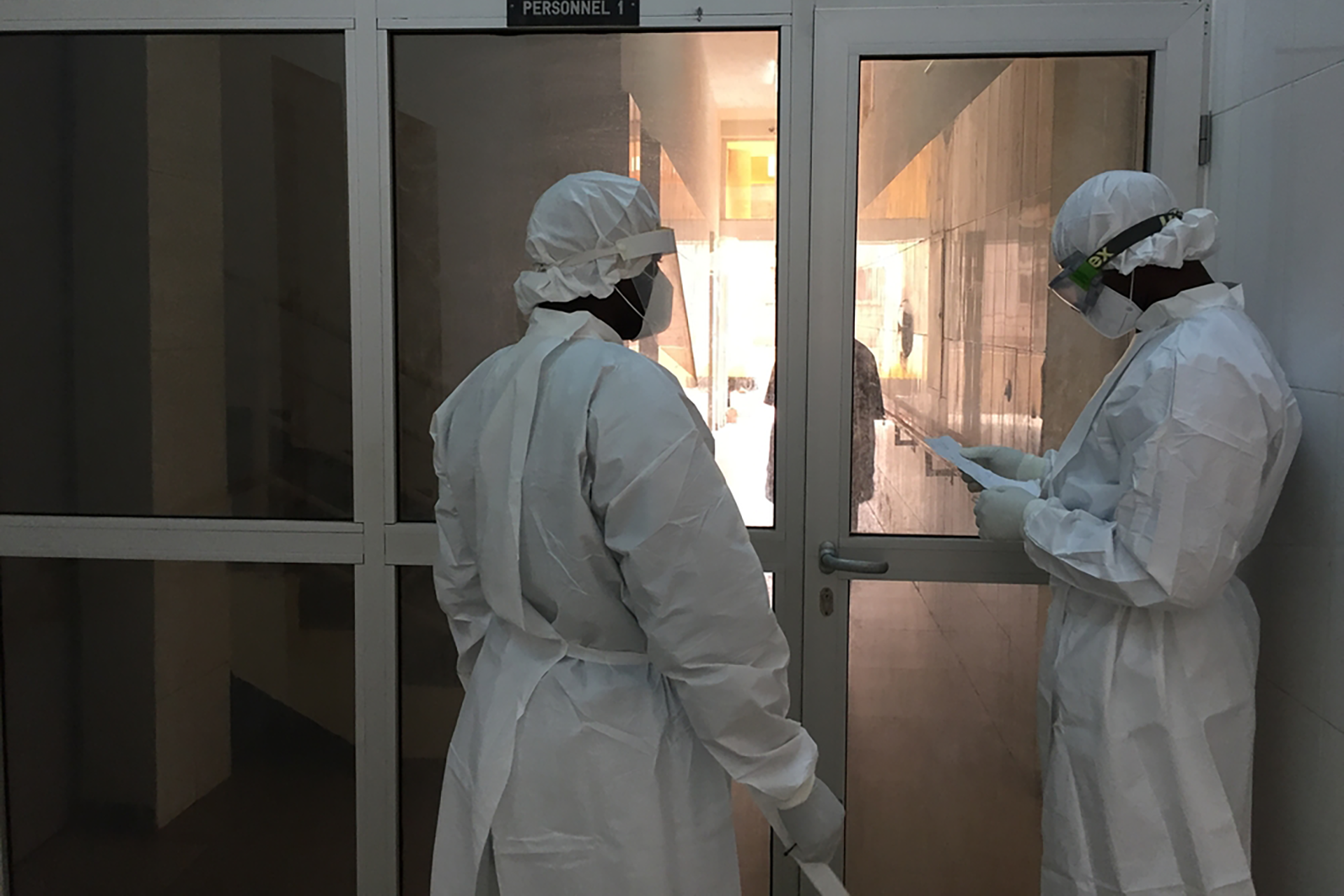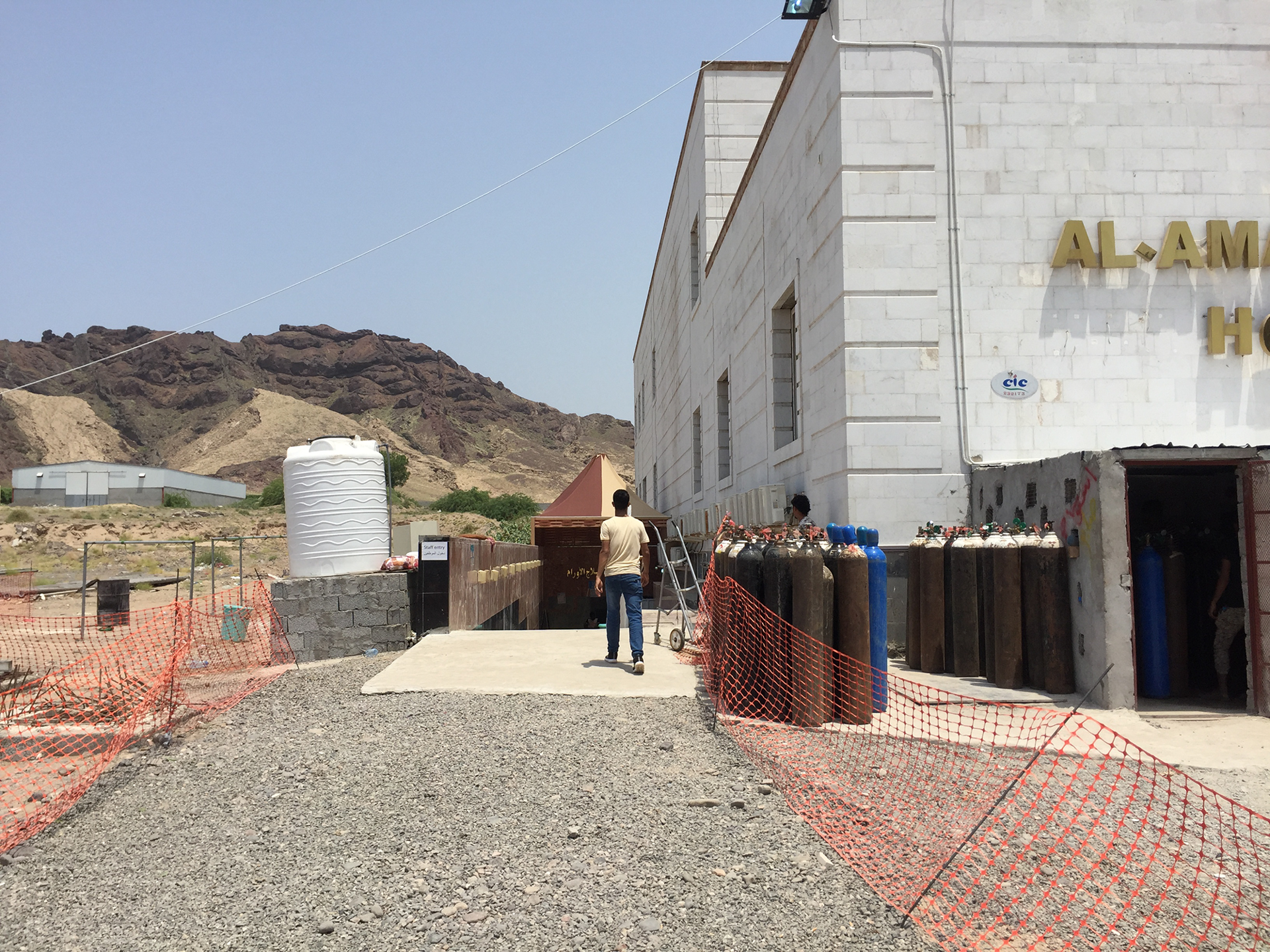Governments must attach strings as they pledge billions to pay for vaccines in developing countries
Doctors Without Borders/Médecins Sans Frontières (MSF) urged leaders to demand pharmaceutical corporations commit to selling any potential future COVID-19 vaccines at cost, as Gavi, the Vaccine Alliance, prepares to launch a global mechanism to negotiate with corporations on such vaccines, and appeals to governments to set up a fund to purchase them for developing countries. The fund will be launched on the sidelines of Thursday’s third pledging conference for Gavi, which was set up 20 years ago to pay for vaccines for the world’s poorest countries.

An MSF staff consults with and screens homeless people in shelters in downtown São Paulo, Brazil. © Diogo Galvão/MSF
Several heads of state have already referred to future COVID-19 vaccines as ‘global public goods’ and ‘the people’s vaccine’. But the translation of these important political statements into concrete plans to purchase future COVID-19 vaccines is yet to be determined. Gavi is attempting to fill this gap by launching a mechanism to scale up manufacturing capacity for potentially successful vaccines and to finance these for a set of developing countries. How governments agree to distribute the vaccine equitably and ensure transparent and objective prioritisation is also under discussion, with the World Health Organization leading a process to develop a global equitable allocation framework. MSF warned that the success of such efforts will hinge on governments adhering to this framework and putting the common good above individual nationalist interests.
“Governments and Gavi need to demand that pharmaceutical corporations open the books so we can see how much potential COVID-19 vaccines will actually cost to produce,” said Kate Elder, Senior Vaccines Policy Advisor for MSF’s Access Campaign. “Everyone seems to agree that we can’t apply business-as-usual principles here, where the highest bidders get to protect their people from this disease first, while the rest of the world is left behind. Governments must ensure any future COVID-19 vaccines are sold at cost and universally accessible to all across the world.”
To date, governments and philanthropies have given over US$4.3 billion to pharmaceutical corporations for research and development for COVID-19 vaccines. However, by and large no conditions for access or affordability have been included as a precondition to any of that funding. The COVID-19 vaccines fund that is being mapped out by Gavi aims to raise billions to pay for increased production capacity for future vaccines, and to secure a price, but there is no guarantee whatsoever that pharmaceutical corporations will charge affordable prices.

A medical staff wears personal protective equipment (PPE) to enter into the high-risk area of the COVID-19 treatment ward in the recently transformed indoor stadium of Patliputra Sports Complex, Patna, India. © Garvit Nangia/MSF
A fund that was designed by Gavi, the Gates Foundation, the World Bank and others in 2009 to pay for pneumonia vaccines suffered from pharmaceutical companies demanding a relatively high price for the vaccine, leaving developing country governments who have had to take over paying for the vaccine long term with unaffordable prices. Despite a $1.5 billion subsidy that was largely doled out to Pfizer and GlaxoSmithKline in attempts to secure enough supply of their pneumonia vaccines for developing countries, there were still supply shortages at times over the course of the funding initiative. Additionally, humanitarian organisations such as MSF and other non-governmental organisations were completely left out of the mechanism. This resulted in MSF being unable to access pneumonia vaccines at the Gavi-negotiated price until 2017, after MSF spent years campaigning for access to the lowest global price for pneumonia vaccines. Lessons need to be learned from that experience – it is crucial to set an at-cost price from the outset, because once prices are agreed, Gavi has not been in a strong position to negotiate lower prices later on.
“We can anticipate that global demand will outstrip supply capacity of future COVID-19 vaccines, certainly at the very beginning,” said Dr Sidney Wong, Director of MSF’s Access Campaign. “While it’s encouraging that so many global leaders have claimed that future vaccines will be global public goods, there is a real concern that nationalist interests could lead to a scramble for who can buy them first. Governments and Gavi must adhere to a transparent and objective global allocation system that at the very least prioritises access to vaccines for frontline healthcare workers and people at greatest risk of severe illness and death worldwide. In our work around the world, MSF has witnessed too many people suffering and dying from diseases because of an absence of affordable medical tools. While we anxiously wait for an effective COVID-19 vaccine, let’s ensure that history does not repeat itself. We must rely on one another to do the right thing, and governments and civil society will have to hold each country to account.”



